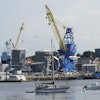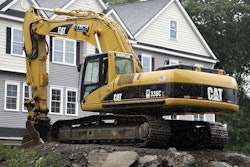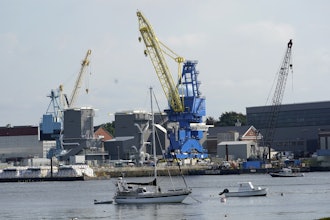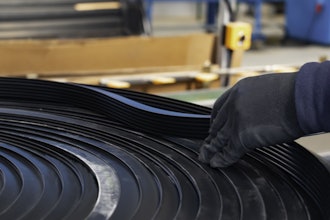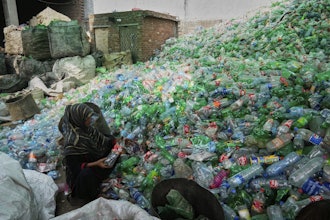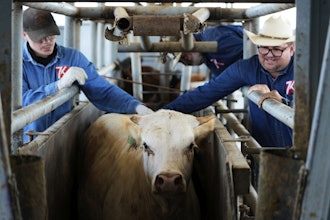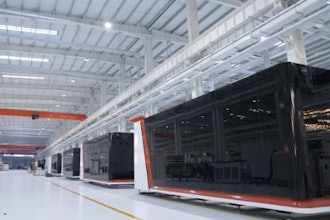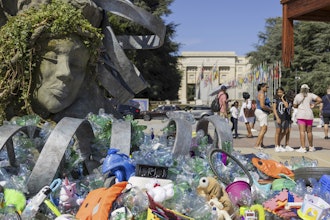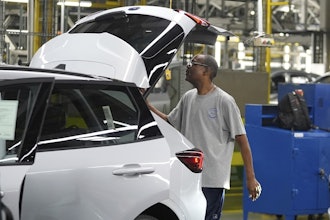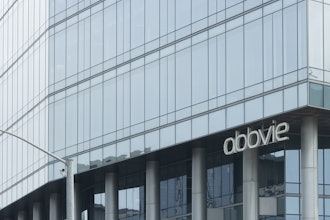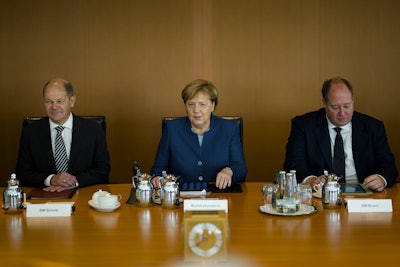
The German government is putting pressure on the country's automakers to fix diesel cars with excessive emissions, in a bid to placate drivers angered by the prospect of driving bans in major cities.
Chancellor Angela Merkel's Cabinet agreed a series of measures Wednesday to upgrade older vehicles affected by the diesel scandal, preventing them from being subjected to driving bans in cities such as Hamburg, Berlin, Stuttgart and Frankfurt.
"It's not acceptable that that the auto industry is paying a lot of money in America, but makes a huge fuss over a few hundred euros (dollars) here," Merkel said at an election rally in Hesse state late Tuesday, calling on car makers to stop penny-pinching when it comes to fixing the cars they sold to consumers with misleading emissions claims.
Her unusually harsh words toward Germany's powerful auto industry came a day before as a court in nearby Mainz considers whether a ban on diesel-powered cars is permissible to prevent air pollution in the city.
Diesel vehicles are a significant source of nitrogen oxides, or NOx, which can be harmful to human health.
The newly announced measures will apply to 15 German cities that significantly exceed the European Union's limit of 40 micrograms of NOx per cubic meter. Another 50 cities in the country are just above the EU threshold.
Merkel's party and her coalition allies, the Social Democrats, are projected to face steep losses in state elections in Hesse on Sunday, while the environmentalist Green party has seen a surge in opinion polls in recent weeks.
Ferdinand Dudenhoeffer, one of Germany's best-known auto industry analysts, called the government's new measures "a transparent election campaign maneuver for the Hesse vote."
He told daily Rheinische Post that Merkel had known about the problem of excessively high NOx emissions since 2010, but refrained from doing anything about it.
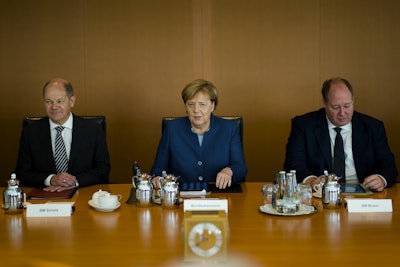 German Chancellor Angela Merkel sits between Vice-chancellor and Finance Minister Olaf Scholz, left, Head of Chancellery and Minister for Special Tasks Helge Braun, right, as she leads the weekly cabinet meeting of the German government at the chancellery in Berlin, Wednesday, Oct. 24, 2018. Image credit: AP Photo/Markus Schreiber
German Chancellor Angela Merkel sits between Vice-chancellor and Finance Minister Olaf Scholz, left, Head of Chancellery and Minister for Special Tasks Helge Braun, right, as she leads the weekly cabinet meeting of the German government at the chancellery in Berlin, Wednesday, Oct. 24, 2018. Image credit: AP Photo/Markus Schreiber
